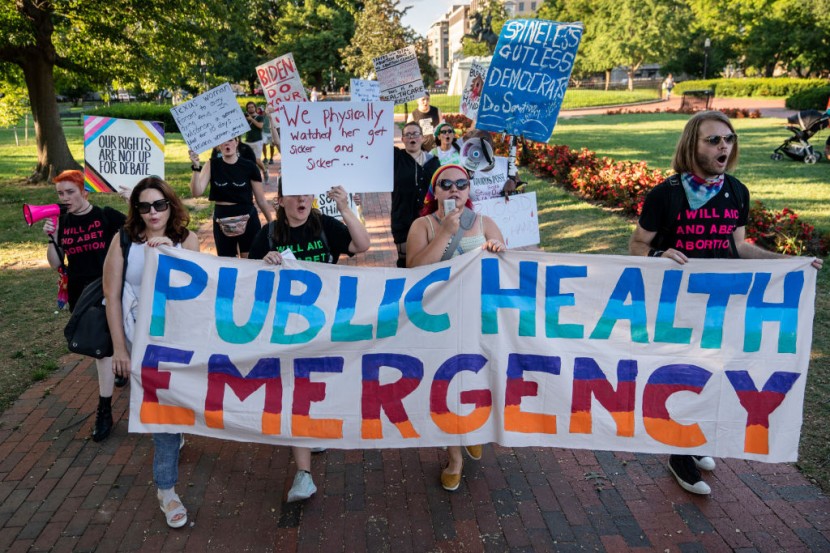
A North Dakota judge on Thursday blocked a trigger abortion ban law in the state as he weighed arguments from the lone abortion clinic in the area that the law violates the state constitution.
The motion was granted by Burleigh County District Judge Bruce Romanick for a preliminary injunction as part of a lawsuit brought by the Red River Women's Clinic in Fargo. The abortion ban was set to take effect on Friday and the clinic has already moved its services a short distance to neighboring Moorhead, Minnesota, where abortion remains legal.
North Dakota Trigger Abortion Law
The judge said that he was not ruling on the probability of the clinic winning the lawsuit, but rather that more time was needed to make a proper judgment on the case. Romanick added that even though the clinic has moved its operations to Minnesota, the statute would also affect doctors and hospitals, making the decision to delay "still pertinent and appropriate."
In a statement, an attorney for the clinic, Tom Dickson, said that his team was "gratified" by the North Dakota judge's ruling. He said that the right of women to make decisions affecting their personal autonomy should be guaranteed by the North Dakota Constitution, as per CBS News.
The clinic's lawsuit argued that the state constitution's guarantees of rights to life, liberty, safety, and happiness effectively guarantee a right to abortion. The situation is the second time that Romanick has blocked the trigger law.
Read Also: Biden Student Loan Forgiveness Could Benefit Over 40 Million Americans; Here's What You Need To Know
Last month, the North Dakota judge ruled that Attorney General Drew Wrigley was premature in setting a July 28 closing date and issued a temporary restraining order that effectively gave the clinic time to move to Moorhead without a gap in services. On the other hand, Wrigley did not respond to questions for comments regarding the issue.
According to CNN, currently, North Dakota allows abortion up until 20 weeks or more post-fertilization. The trigger law would have made it a felony to perform an abortion in the state with exceptions for the life of the mother or in cases of rape or incest.
Overturning Roe v. Wade
A staff attorney at the Center for Reproductive Rights, Meetra Mehdizadeh, said that the court had "rightfully recognized the harmful impacts this ban would have on North Dakotans." They said that the trigger law completely disregards the health care needs of pregnant people and punishes doctors for providing critical life-saving services to their patients.
On the other hand, laws were passed in anticipation of the Supreme Court overturning Roe v. Wade, tightening abortion restrictions in Tennessee, Idaho, and Texas, on Thursday. The officials in Idaho and Tennessee have banned abortion from conception. In Texas, authorities raised the penalty for abortion providers in the state.
Nearly 36% of American women live in a state that bans most abortions, though some of those laws have been temporarily blocked by the courts, and more restrictions are on the horizon. On the other hand, anti-abortion activists welcomed the new restrictions, which outlawed abortions that had previously been allowed under "heartbeat" bans in Idaho and Tennessee, the Washington Post reported.
Related Article:
Kansas Recount Confirms Landslide Win for State's Abortion Rights But Highlights Risk to Democracy








